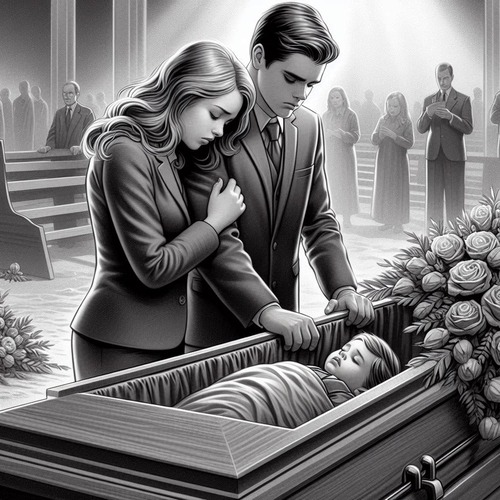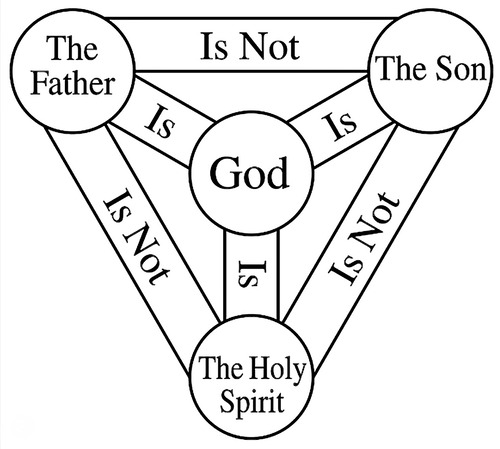Called Home Early: Reformed Perspectives on Infant Death
What Happens to Babies When They Die?
The question of what happens to those who die in infancy and early childhood is one that has troubled Christians for centuries. It’s a deeply emotional and theological issue that touches on fundamental aspects of our understanding of God’s character, His sovereignty, and the nature of salvation. Let’s explore the sensitive topic of infant death from a Reformed perspective, grounded in Scripture and key confessional documents.
The Doctrine of Original Sin: To address this question, we must first acknowledge the Reformed doctrine of original sin. This teaches that all humans, from conception, inherit Adam’s sinful nature and are therefore subject to God’s judgment (Psalm 51:5, Romans 5:12-21). This doctrine applies to infants as well, challenging the notion of their “innocence” in a theological sense.
God’s Sovereignty in Salvation: Reformed theology emphasizes God’s absolute sovereignty in salvation. Ephesians 1:4-5 states, “For he chose us in him before the creation of the world to be holy and blameless in his sight. In love he predestined us for adoption to sonship through Jesus Christ, in accordance with his pleasure and will.” This doctrine of election applies to all who are saved, regardless of age.
The Covenant Promise: Reformed theologians point to God’s covenant promises as a source of hope for believing parents. In Acts 2:39, Peter declares, “The promise is for you and your children and for all who are far off—for all whom the Lord our God will call.” This suggests God’s covenant blessings extend to the children of believers.
Biblical Examples of God’s Care for Children: Scripture provides several examples of God’s special care for children: David’s confidence about his deceased infant son (2 Samuel 12:23), Jesus’ welcoming of little children (Mark 10:14-15) and God’s concern for the children of Nineveh (Jonah 4:11). These passages suggest God’s particular compassion for young ones.
The Age of Accountability: While not explicitly taught in Scripture, the concept of an “age of accountability” has been discussed by some Reformed thinkers. The idea suggests young children who die before reaching an age where they can understand and respond to the gospel might be saved by God’s grace. However, it’s important to note this concept is inferential rather than explicitly biblical.
God’s Character and Justice: Reformed theology emphasizes God’s perfect justice and mercy. Psalm 119:137 declares, “Righteous are you, LORD, and your laws are right.” Whatever God decides regarding infants who die is, by definition, just and right. We can trust in His character, even when we don’t fully understand His ways.
Historical Reformed Perspectives on Infant Death: Many Reformed theologians throughout history have expressed hope for the salvation of infants who die:
- John Calvin suggested elect infants who die are regenerated by the Holy Spirit in a manner unknown to us.
- Charles Spurgeon, while not strictly Reformed, expressed confidence in the salvation of infants who die.
- BB Warfield argued for the probable salvation of all who die in infancy.
The Westminster Confession: The Westminster Confession of Faith, a key Reformed document, states in Chapter 10, Section 3: “Elect infants, dying in infancy, are regenerated, and saved by Christ, through the Spirit, who worketh when, and where, and how he pleaseth: so also are all other elect persons who are incapable of being outwardly called by the ministry of the Word.”
This statement allows for the possibility of infant salvation while maintaining the doctrines of election and original sin.
The Canons of Dort—Pivotal Reformed Perspectives on Infant Death: The Canons of Dort are a set of theological statements adopted by the Synod of Dort in 1618-1619. The Canons are one of the most important confessional documents in Reformed theology. The Canons of Dort specifically address the issue of infant salvation in the First Head of Doctrine, Article 17:
“Since we are to judge of the will of God from His Word, which testifies that the children of believers are holy, not by nature, but in virtue of the covenant of grace, in which they, together with the parents, are comprehended, godly parents have no reason to doubt of the election and salvation of their children, whom it pleaseth God to call out of this life in their infancy.”
This statement provides several important insights:
- Covenant Theology: The Canons emphasize the importance of the covenant of grace, suggesting that children of believers are included in this covenant.
- Assurance for Believing Parents: The document offers comfort to godly parents, encouraging them not to doubt the salvation of their children who die in infancy.
- God’s Sovereignty: The phrase “whom it pleaseth God to call out of this life in their infancy” underscores God’s sovereignty in these matters.
- Limited Scope: It’s important to note that this statement specifically refers to the children of believers, not necessarily all infants.
The Canons of Dort’s statement on this issue has been interpreted in several ways within the Reformed tradition: Some see it as a strong affirmation of the salvation of all covenant children who die in infancy. Others interpret it more cautiously, seeing it as an encouragement to parents rather than a definitive doctrinal statement about all cases. The focus on “children of believers” has led some to question what this implies about children of non-believers, though the Canons do not directly address this.
Pastoral Considerations: When addressing this issue pastorally, it’s crucial to balance doctrinal faithfulness with compassionate care. While we cannot definitively state all infants who die are saved, we can point grieving parents to God’s character, His love, and His justice. We can encourage trust in His goodness and wisdom.
Conclusion: While the Reformed tradition maintains the doctrines of original sin and God’s sovereignty in salvation, Reformed thinkers express hope for the salvation of infants who die, particularly those of believing parents. This hope is based on biblical examples of God’s care for children, the covenant promises, and trust in God’s perfect justice and mercy.
Ultimately, we must humbly acknowledge God has not given us explicit revelation on every aspect of this matter. We can trust the Judge of all the earth will do what is right (Genesis 18:25). Our response should be to trust in God’s character, proclaim the gospel faithfully, and look forward to the day when all things will be made clear.
As believers, we can find comfort in knowing God’s ways are higher than our ways, and His thoughts higher than our thoughts (Isaiah 55:8-9). We can rest in His perfect love and justice, even in the face of difficult questions, and take solace in the assurances provided by the Reformed heritage, particularly as expressed in the Canons of Dort.
Related Reads:
- Beauty from Brokenness: Christian Perspectives on Pain and Suffering
- Evil Is Just the Absence of Good? The Bible Tells Us Otherwise
- The Foreknowledge of God: Far More Than Mere Foresight
- Called Home Early: Reformed Perspectives on Infant Death
- Why Does a Loving God Allow Evil to Exist?
- The Nature of God in Christian Doctrine
Editor's Pick

The One Man Mystery in Acts 17:26: Is It Adam Or Noah?
When the Apostle Paul stood before the philosophers at Mars Hill, he delivered an insightful statement about human unity: “And [...]

Megiddo Or Jerusalem: Where Did King Josiah Die?
Recent archaeological discoveries at Tel Megiddo continue to reveal evidence of Egyptian military presence during the late 7th century BC, [...]

Losing Your Life Vs Wasting It: How Are the Two Different?
AND WHY DID JESUS PRAISE THE FORMER? Jesus spoke one of the most perplexing statements in Scripture: “For whoever wants [...]

Can Christians Be Demon Possessed? What the Bible Teaches
Perhaps you’ve witnessed disturbing behavior in a professing Christian, or you’ve struggled with persistent sin and wondered if something darker [...]

Sacred Fury: What Christ’s Temple Cleansing Truly Means
Mark 11 records the crack of a handmade whip that echoed through the temple corridors. Tables crashed to the ground, [...]

Did Jesus Cleanse the Temple Twice?
OR DID JOHN DISAGREE WITH THE SYNOPTICS ON TIMING? One of sceptics’ favourite "gotcha" questions targets what they see as [...]

Self-Authentication: Why Scripture Doesn’t Need External Validation
"How can the Bible prove itself? Isn't that circular reasoning?" This objection echoes through university classrooms, coffee shop discussions, and [...]

Do Christians Need Holy Shrines? Why the Reformed Answer Is No
Walk into a medieval cathedral and you'll encounter ornate shrines, gilded reliquaries, and designated "holy places" where pilgrims gather to [...]

I Want To Believe, But Can’t: What Do I Do?
"I want to believe in God. I really do. But I just can't seem to make it happen. I've tried [...]

BC 1446 or 1250: When Did the Exodus Really Happen?
WHY REFORMED SCHOLARS SUPPORT THE EARLY DATE Many a critic makes the claim: “Archaeology has disproven the biblical account [...]
SUPPORT US:
Feel the Holy Spirit's gentle nudge to partner with us?
Donate Online:
Account Name: TRUTHS TO DIE FOR FOUNDATION
Account Number: 10243565459
Bank IFSC: IDFB0043391
Bank Name: IDFC FIRST BANK






